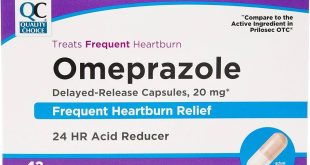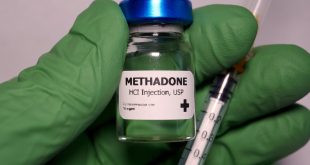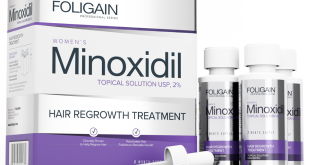Embracing Radiance Biotin Unveiled as Nature’s Beauty Elixir
Introduction
In the symphony of health and wellness, certain vitamins play the role of virtuoso performers, each contributing a unique note to the composition of our well-being. Biotin, often referred to as Vitamin H, is one such nutrient that has emerged not only as a fundamental element in maintaining overall health but also as a revered elixir for promoting radiant beauty. Let’s embark on a journey into the world of biotin, exploring its natural origins, physiological significance, and the expanding canvas of its benefits.
Biotin Unveiled: A Symphony of Nature
Nature has a way of bestowing us with treasures hidden in plain sight. Biotin, a water-soluble B-vitamin, is one such gem found abundantly in various natural sources. Commonly sourced from food items like eggs, nuts, seeds, and leafy green vegetables, biotin serves as a cofactor for enzymes involved in essential metabolic processes. This vitamin, with its subtle presence in nature, orchestrates a harmonious dance within our bodies, contributing to the synthesis of fatty acids, glucose metabolism, and the breakdown of amino acids.
The Role of Biotin in Beauty and Beyond
Beyond its foundational role in metabolism, biotin has garnered attention for its beauty-enhancing properties. Often hailed as the “beauty vitamin,” biotin is celebrated for its positive influence on skin, hair, and nails. The quest for lustrous hair, glowing skin, and strong nails has led many to explore the potential benefits of biotin supplementation.
Biotin and Hair Health
Hair, often considered a crowning glory, reflects our inner vitality. Biotin plays a pivotal role in maintaining the health of our tresses. It is involved in the production of keratin, a structural protein that constitutes the building blocks of hair. Adequate biotin levels are associated with hair strength, texture, and resilience, making it a sought-after supplement for those aiming to promote healthy and vibrant locks.
Research suggests that biotin deficiency may lead to hair thinning or loss. While cases of severe deficiency are rare, individuals experiencing hair-related concerns may explore biotin supplementation under the guidance of healthcare professionals.
Skin’s Radiance and Biotin Connection
Our skin, a reflection of our inner well-being, benefits from the nourishing touch of biotin. Biotin contributes to the maintenance of healthy skin by supporting the synthesis of fatty acids, essential for skin hydration and elasticity. Its role in cellular metabolism also promotes the renewal of skin cells, contributing to a youthful and radiant complexion.
Biotin’s association with skin health has led to its inclusion in various skincare formulations. From creams to serums, the beauty industry has recognized the potential of biotin in promoting skin vitality. However, it is essential to approach such products with discernment, considering individual skin types and sensitivities.
Nail Strength and Biotin
Nails, often overlooked but indicative of our overall health, can benefit from the fortifying effects of biotin. Biotin supports the formation of keratin in the nails, contributing to their strength and resilience. Brittle nails, a common concern for many, may find relief through biotin supplementation.
While the beauty benefits of biotin have garnered widespread popularity, it is important to approach supplementation with a holistic perspective. Beauty emanates from within, and biotin serves as a gentle supporter in this holistic approach to well-being.
Biotin in Pregnancy and Breastfeeding
The significance of biotin extends to the realm of maternal health. During pregnancy and breastfeeding, women may have increased biotin requirements. Biotin is crucial for the development of the fetus and plays a role in supporting healthy growth.
Pregnant and breastfeeding women should consult their healthcare providers to ensure they meet their nutritional needs, including an adequate intake of biotin. While prenatal vitamins often contain biotin, individual requirements may vary, emphasizing the importance of personalized healthcare guidance.
Sources of Biotin: Nature’s Bounty
Nature provides us with a bountiful array of foods rich in biotin. Including a variety of these foods in our diet not only ensures an adequate intake of biotin but also offers a spectrum of nutrients essential for overall health.
1. Eggs: The yolk of eggs is a rich source of biotin, making it a versatile and nutritious option for obtaining this vital vitamin.
2. Nuts and Seeds: Almonds, walnuts, sunflower seeds, and other nuts and seeds contain biotin along with a host of other nutrients, making them a wholesome addition to our diet.
3. Leafy Green Vegetables: Dark, leafy greens like spinach and kale provide not only biotin but also a wealth of antioxidants and vitamins crucial for holistic well-being.
4. Fish and Meat: Salmon, trout, and organ meats are excellent sources of biotin. Including these in a balanced diet ensures a diverse range of nutrients.
5. Whole Grains: Whole grains such as oats and barley contribute to biotin intake while providing fiber for digestive health.
Understanding the natural sources of biotin and incorporating them into our diets fosters a sustainable and holistic approach to wellness.
Biotin Supplementation: A Personalized Choice
While a well-balanced diet rich in biotin-containing foods is ideal, some individuals may consider supplementation to meet specific health or beauty goals. Before incorporating biotin supplements into your routine, it is advisable to consult with a healthcare professional. Excessive intake of biotin supplements may lead to potential side effects and interactions with medications.
Biotin supplements are available in various forms, including capsules, gummies, and liquid formulations. Selecting a reputable and quality product, guided by healthcare advice, ensures the safe and effective integration of biotin into one’s wellness routine.
Potential Side Effects and Considerations
While biotin is generally considered safe when consumed within recommended doses, it is essential to be mindful of potential side effects and interactions. Some individuals may experience mild side effects such as nausea or digestive issues. High doses of biotin can interfere with certain laboratory tests, leading to inaccurate results. Informing healthcare providers about biotin supplementation is crucial to ensure accurate diagnostic assessments.
Individuals with pre-existing medical conditions or those taking medications should seek guidance from their healthcare professionals before starting biotin supplementation. Collaborative decision-making between individuals and their healthcare providers ensures a personalized and safe approach to wellness.
Conclusion: Nurturing Radiance from Within
In the tapestry of health and beauty, biotin emerges as a delicate thread, weaving its way through the intricate patterns of our well-being. From the natural abundance of foods to the realm of carefully crafted supplements, biotin invites us to embrace a holistic approach to radiance.
As we navigate the diverse landscapes of health and beauty, let us remember that true radiance emanates from a foundation of well-nourished cells, thriving in harmony with nature’s gifts. Biotin, with its subtle yet profound influence, beckons us to nurture our inner vitality, allowing our natural beauty to unfold like the petals of a blossoming flower. In the grand symphony of life, let the melody of biotin resonate as a gentle reminder that beauty, when nourished from within, becomes a timeless expression of our vibrant and authentic selves.



